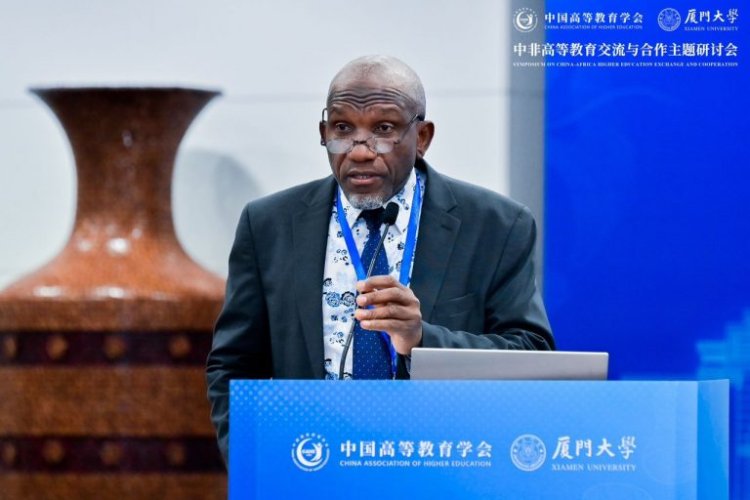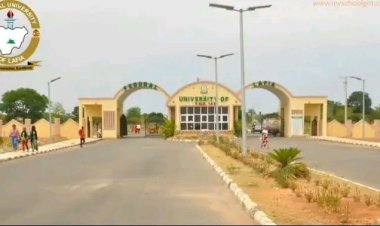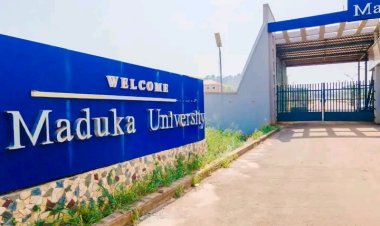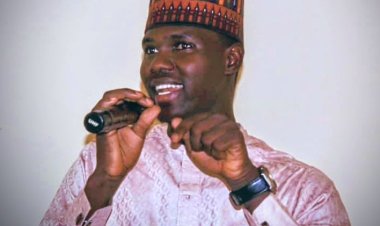How To Navigate Challenges Posed By Artificial Intelligence in ABU, by Vice-Chancellor
The Vice-Chancellor, Ahmadu Belo University, Zaria, Prof. Kabiru Bala, has spoken on the strategies that could be used in the institution to effectively navigate the seeming challenges such as access, equity, inclusiveness, ethics, and others posed by Artificial Intelligence technologies.

Prof. Bala was among the global scholars who spoke at the International Institute of Online Education (IIOE) Global partners Summit at Shenzhen in China from 7th – 9th December 2023.
Recommended For You:Czech Republic Donates Block of Classrooms to FOMWAN School...
The Summit, christened “Transforming Higher Education in the Age of AI”, aimed at bringing together global education leaders, policy makers, experts, scholars, industry professionals, and corporate entities to collectively explore the opportunities and challenges that artificial intelligence brings to higher education.
Artificial Intelligence is increasingly becoming a key driven force in the higher education sector, prompting academia and industry to collectively face unprecedented opportunities and challenges.
Prof. Bala spoke on “Driving Digital Transformation of Teaching and Learning in Ahmadu Bello University, Zaria Using the Teaching and Learning Policy (TPL): A Collaboration between ABU, UNESCO-ICHEI, and the IIOE Nigeria National Centre”.
Read Also:ABU admission list out now on Jamb CAPS
The Vice-Chancellor’s presentation was moderated by Prof. Ismi Arif Ismail, Deputy Vice-Chancellor, Academic and International, Universiti Putra Malaysia.
Bala stressed that ABU governance, teachers, and other stakeholders must proactively engage in updating the teaching and learning policy to include strategies and guidelines that ensure transparency and accountability in the use of artificial intelligence technologies and tools in the teaching, learning, and research processes.
These strategies and guidelines, according to him, must ensure a balance between harnessing the benefits of AI-enhanced learning and addressing those intricate processes.
The Vice-Chancellor further said that they should, where possible, align with national and/or international regulations but must be “fit for purpose” for the University considering its peculiarities.
He said that it was imperative that the learners and researchers are engaged in the drafting of the strategies and guidelines, the planning and monitoring of their implementation as they constitute a major source of feedback and data.
Prof. Bala also stressed that driving educational change via digital transformation of teaching and learning in collaboration with innovative partners such as UNESCO-ICHEI was critical to universities like ABU, as it helps build capacities, develop policies, and implementations.
Read also:TGI Signs MOU With ABU On Research Investment
These transformations, he further said, were expected to transform teaching and learning modes, enhance accessibility and inclusivity, drive data-driven decisions, globalize education, and manage costs.
He explained that collaboration between ABU and UNESCO-ICHEI through IIOE and IIOE Nigeria National Centre became critical to the actualisation of the teaching and learning policy.
Speaking on the National Project on “Empowering Institutional Policy for Digital Teaching and Learning in Nigeria”, Prof. Bala said that one of the project objectives was to, among others, expand the IIOE Nigeria Network and acting as the national hub.
Did You Miss:ABU Zaria Professor Who Works As Welder
Other project objectives, he also said, included supporting implementation of institutional policies for digital teaching and learning in Nigerian Higher Education Institutions (HEIs) using the ABU’s TPL as a case study.
Empowering IIOE Nigeria National Centre to undertake digital literacy enhancement programmes required to drive the digital transformation of higher education teaching and learning was equally part of the project objectives, Prof. Bala stated.

 Akeelah
Akeelah 



